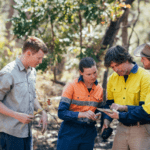Freelance science writing comes in many flavours, but broadly speaking, there are two categories. One is writing for the general public, either online or in print. Publications like Smithsonian Magazine, Wired, or Popular Science are examples as are newspapers and newsweeklies. The other category is writing for specialized or commercial audiences. This can take the form of writing press releases for research journals, blogging for a science-related company, or writing for a trade publication related to a specific scientific field, among many others. Writing for specialized audiences tends to pay better, but writing for general audiences will get more eyes on your work, so you’ll need to think about what your ultimate goals are. And of course, you can do a bit of both.
How to Get Started
A good two-pronged approach to getting started is to learn about the field and its norms while at the same time just getting some words down and putting them out there for people to read, thereby building up your portfolio. Learning about the job can mean reading books (The Science Writers’ Handbook and The Field Guide for Science Writers are both great options) or online articles, taking online or in-person workshops or courses, or even doing a post-secondary degree, certificate, or diploma in journalism or science communication.
To start to get your writing out there, one common strategy is to begin blogging, either on your own blog or as a guest writer for someone else’s (such as non-profit Canadian science blog promoter Science Borealis). You could also write for non-paying venues, which are more likely to consider new writers. Writing for free is a very controversial subject among freelancers, because too many people being willing to do it has the effect of driving down pay rates for everyone.
Whether you choose to write for free or not is up to you, but it remains a way in which many writers get their start. Even if you do, know your worth and try to get paid for your work whenever you can. Finally, there’s no rule saying you can’t approach more widely read and paying publications as a newbie—a good pitch is a good pitch, and if you write one an editor can’t resist, you could get a shot at a great byline even without a ton of experience. Just be prepared to hear “no” a lot at the beginning.
Finding Jobs
In some circumstances, you’ll simply show an editor your portfolio, and if it’s deemed sufficient, you’ll be assigned an article or other piece of writing that they want done. But in most cases, you’ll need to bring your own ideas and sell them. This means learning how to pitch. A pitch is a short description of a compelling story you’d like to write, why it would interest the publication’s readership, and why you’re the person to write it. There’s an art to pitching well, and there are plenty of resources online for teaching you how it’s done. For examples of great pitches, I recommend The Open Notebook’s Pitch Database, which collects successful pitches for various science publications so others can learn from them.
If writing for mainstream science publications is your goal, many popular online science publications accept pitches from freelancers. Nose around to see if they post submission guidelines, and follow them carefully. Read enough of the publication to get a sense of what they publish and what type of voice the writing tends to use. Then find a story idea that you think would be a good fit for this venue and craft your pitch.
Story ideas can be found by keeping up to date with new discoveries in your field. Big finds published in journals like Nature or Science are likely to be adequately covered, so pay attention to smaller publications. Scientific conferences can also be a good source for stories if you keep your eyes open. Publications will sometimes also put out calls for pitches on particular types of stories. A good way to be aware of these is to follow Twitter hashtags like #pitchme or #callforpitches.
For those that would prefer to be working outside of the mainstream media, networking and word of mouth can be important. You can also query the editors of blogs and trade publications you admire to see if they’re looking to add to their team of writers.
Finding Funds
For those wanting to undertake travel to investigate a story, get funding for a special project, or who wish to attend a scientific conference to find story ideas, there are various funding opportunities. The National Association of Science Writers maintains a grant page on their website (along with other resources), as does the Society of Environmental Journalists.
The American Association for the Advancement of Science has fellowships for international science reporters, and the Woods Hole Oceanographic Institution has its Open Science Journalism Fellowship, to name but a few. So if you’ve got a story you want to report on or a journalistic project you’re burning to take on, there may be financial help available for you.
Perspectives from the Field
We asked post-academic freelance science writers what skills are crucial in their jobs, or if they had any tips for those wanting to enter the field.




